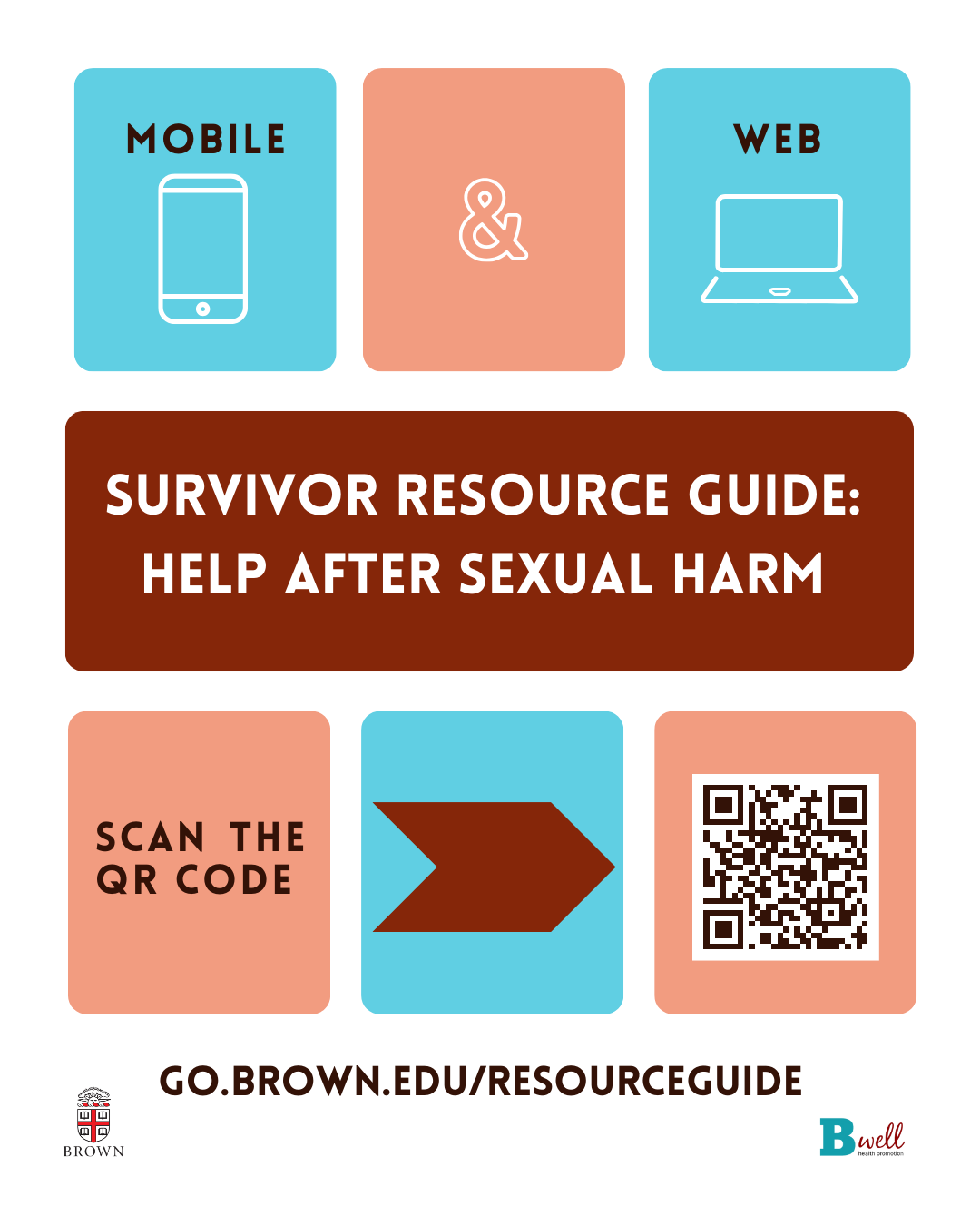Campus, Confidential Resources:
BWell SHARE Advocates (Sexual Harm Acute Response & Empowerment), [email protected], 401.863-2794, Ground Level of Health & Wellness Center, 450 Brook Street.
The SHARE (Sexual Harm Acute Response & Empowerment) Advocates in BWell Health Promotion are confidential resources at Brown that can provide support to any student from any part of the University (undergraduate, graduate, and medical students) affected by issues or experiences related to: Sexual Assault, Sexual and/or Gender-based Harassment, Domestic/Dating Violence, Relational Abuse, or Stalking, that has taken place at any time in their lives. Confidential services include acute responses or ongoing empowerment-based support for a survivor or the friends of a survivor, including help filing a complaint (if that is the student's choice) and/or navigating resources at Brown and in the community.*This is a survivor-centered resource for people who have experienced sexual harm.
Counseling and Psychological Services 401.863-3476
Clinicians provide confidential crisis support, follow-up appointments, and 24-hour on-call services for any Brown student dealing with stalking. Located on the First Floor of the Health & Wellness Center, 450 Brook Street.
Brown Emergency Medical Services (EMS) 401.863-4111
Emergency response available 24 hours a day, 7 days a week.
Chaplains Office 401.863-2344
The Chaplains are available for personal counseling and support. Call to make an appointment. Located in Page-Robinson Hall, Room 410.
Campus, Private but NOT Confidential Resources:
Department of Public Safety 401.863-4111 (emergency response)
Emergency response and crime reporting available 24 hours a day, 7 days a week. You can also contact the Crime Victim Assistance Unit at 401.863-2542 for information and support concerning University and Providence Police reporting options. Services include safety planning, victim advocacy, court accompaniment and assistance with obtaining restraining orders. Seeking help from the Crime Victim Assistance Unit does not require you to file a police report.
Title IX Office
(401) 863-2026
Information and support resources for the Brown University community around issues of sexual misconduct and Title IX.
Office of Student Life/Administrator-on-Call 401.863-3145 (after hours, 863-4111)
The Administrator-on-Call will provide support to any student reporting stalking behavior. A student can choose to file a complaint in the non-academic discipline system if the complaint is against another student.






